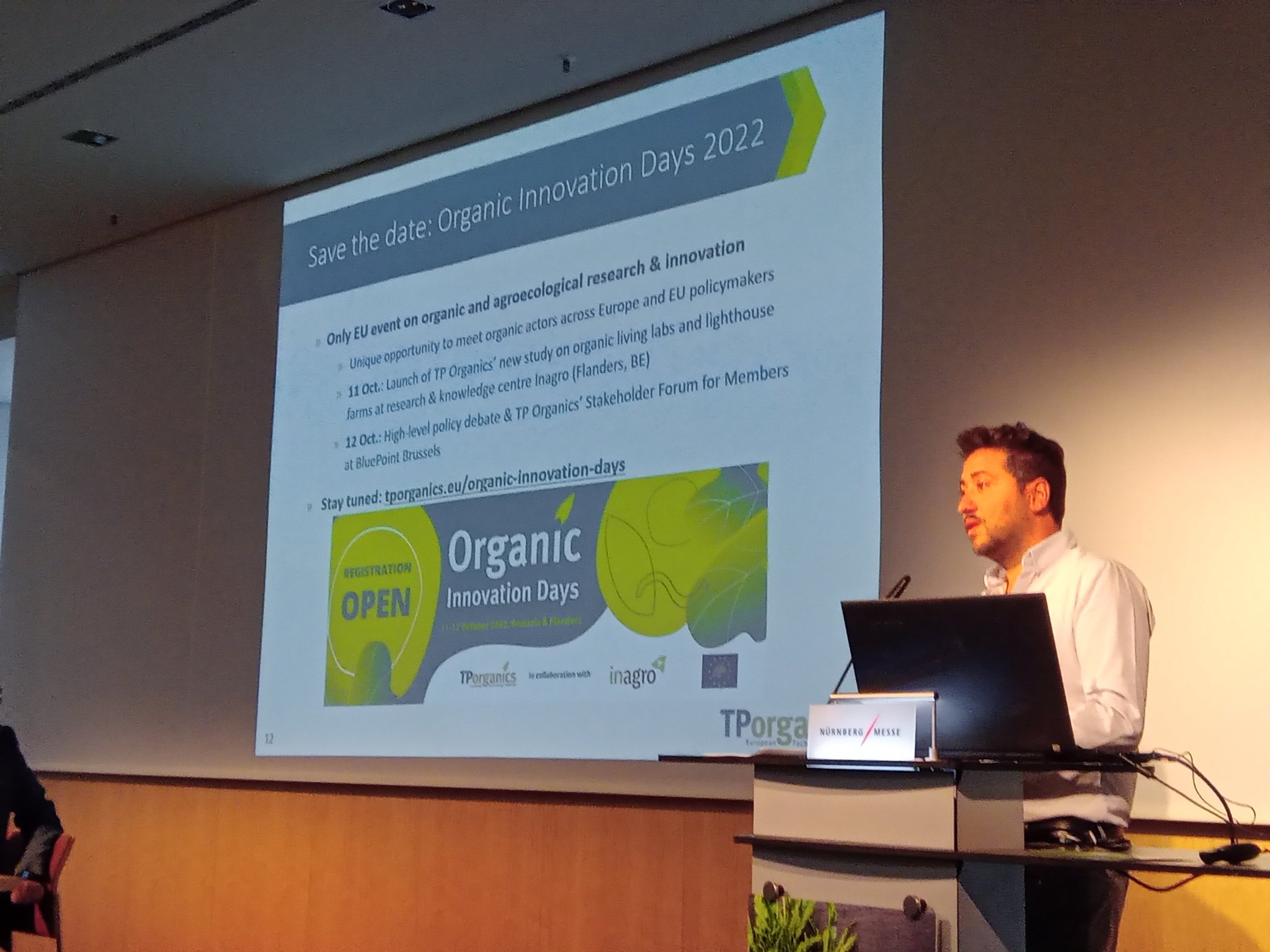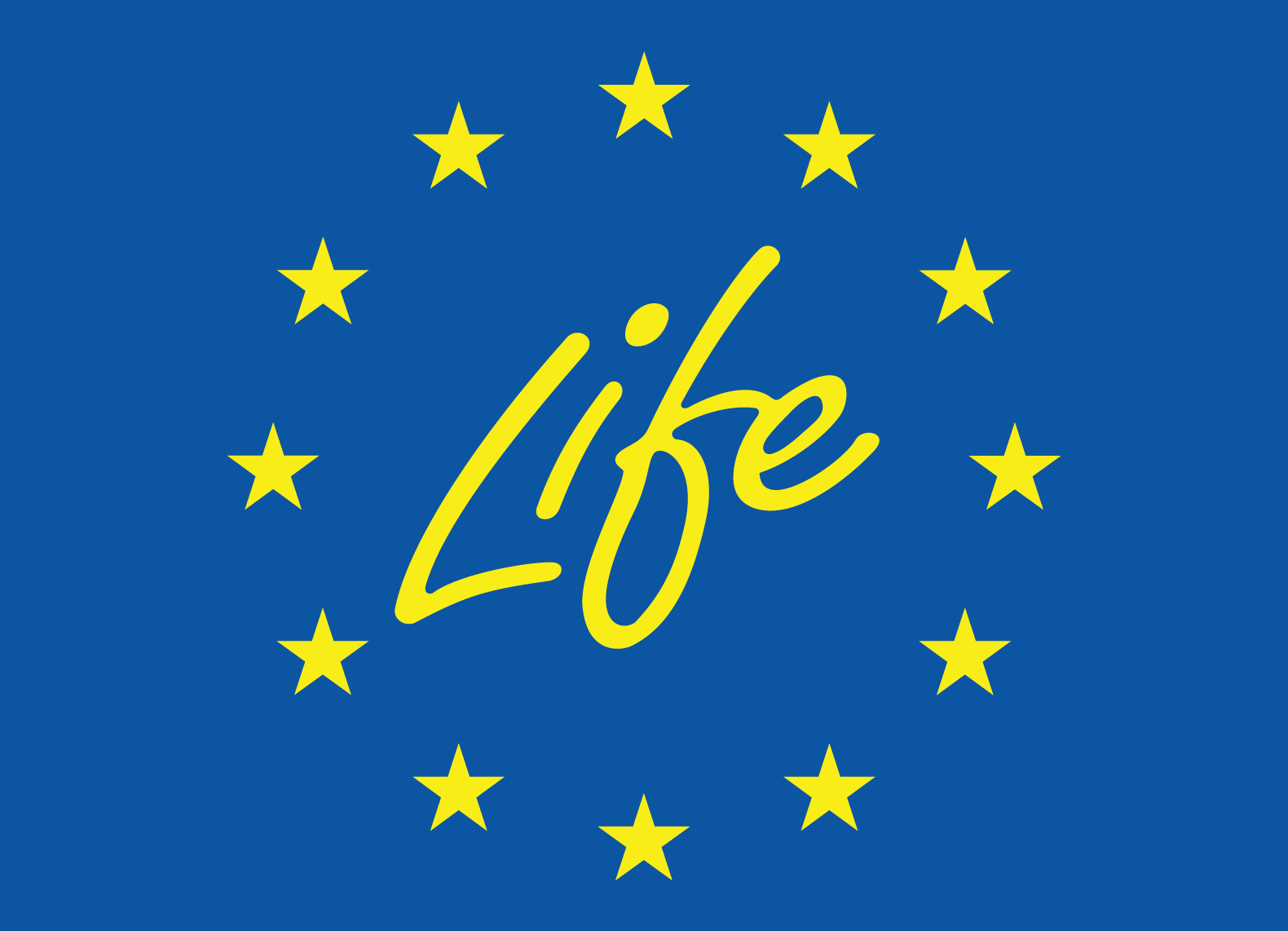TP Organics’ Science Day: 29 July, Nuremberg, Germany
TP Organics’ Science Day 2022 at BIOFACH’s summer edition was dedicated to digital technology for local and small-scale processing.
Eduardo Cuoco, TP Organics Head of Secretariat kicked the Congress session off by introducing TP Organics, the European Technology Platform’s network comprising of 127 members from the entire food supply chain. Its mission is to strengthen research and innovation for organic and other agroecological approaches contributing to sustainable food and farming systems. Join TP Organics to get the latest research updates, upcoming funding opportunities, brokerage services and more!

SmartAgriHubs: Fostering digital innovation & free online portal
Digitalisation is one of many tools to transform food and farming. IFOAM Organics Europe is a partner in the Horizon 2020 SmartAgriHubs (SAH) project fostering digital innovation hubs. You can also become part of the SmartAgriHubs innovation portal and/or learn more about the conditions digital technology has to fulfil to be fit for agroecological practices in the article on the SAH blog!
Of course, we need to make sure digitalisation processes help transform our food system, in line with the organic and agroecological principles. Find out how in our publication Agroecology & digitalisation – Traps and opportunities to transform the food system.
Robotics in (organic) agriculture
As first speaker, Grigoris Chatzikostas, Vice-President of Business Development at Impact Venture Studio FoodScale Hub, introduced Robs4Crops, a spin-off project of SmartAgriHubs that is also coordinated by Wageningen University and Research. This Horizon 2020 project implements technologies in large-scale field trials to increase safety and reduce the use of inputs, the overall carbon footprint of food production and pressure on soil while preserving land, among others.
Digital technologies in organic controls
Besides in farming, digitalisation can also be used in other parts of the supply chain. Just like organic farming, retail and trade are also about trust. Bogdan Dreihaupt, Managing Director at Control Union Certifications Ukraine introduced Control Union, a family certification business active in more than 70 countries which is leading in sustainability and agriculture-related standards.
In his presentation, Mr Dreuhayps talked about the challenges and opportunities for organic certification digital technology holds, e.g., streamlining and storing data. Moving forward, and considering recent crises, from COVID-19 to the Ukraine war, solutions include smart data management (documentation checks), quality remote and hybrid compliance audits, application of Artificial Intelligence (AI) in risk assessment, benchmarking across different sustainability standards and combination audits (e.g., GLOBAL GAP, EU ORG, USDA NOP).
Reseach & innovation in EU policies
Elena Panichi, Head of the Organics Unit at the Commissions Directorate-General for Agriculture and Rural Development (DG AGRI), pointed out that many of the actions foreseen in the EU Organic Action Plan to realise the Farm to Fork target of 25% organic farmland by 2030 relate to traceability and transparency. According to Actions 6, 7 and 14, digital technologies such as AI and blockchain can help strengthen organic certification and support short supply chains.
In addition to digitalisation and IT-related calls for projects, funding opportunities under Horizon Europe also include the Agriculture of Data partnership, which will support sustainable agriculture in the EU, as well as policy monitoring and implementation by using digital and data technologies (in particular AI) in environmental observation (consult the final partnership proposal).
As future opportunities, the topic “Developing EU advisory networks on consumer-producer chains” to facilitate the upscaling of short supply chains was mentioned, as were the topics on “Sustainable organic food innovation labs” to reinforce upstream sections of the organic food value chains and “Towards sustainable livestock systems”, which are all part of the next Horizon Europe Work Programme (2023-2024). Ms. Panichi also referred to other European policy instruments like DIGITALEUROPE (focus on innovation and development, capacity building) and Common Agricultural Policy (focus on application, capacity building, innovation).
Download the presentations on the TP Organics website and stay tuned for the next edition at BIOFACH 2023 from 14-17 February, which will be about sustainable organic food innovation labs!
If the content of this article resonates with you, consider attending the final SmartAgriHubs conference from 26-28 September in Lisbon. It will bring together all actors in the field of digitalisation. You can also consider saving the date for TP Organics’ Organic Innovation Days on 11-12 October in Brussels and at agricultural research and knowledge centre Inagro – register now to save your free spot! TP Organics is the European Technology Platform for Organic Food and Farming. IFOAM Organics Europe is a founding member and hosts its secretariat. Visit www.tporganics.eu for more information and follow its Twitter @TPorganics.


